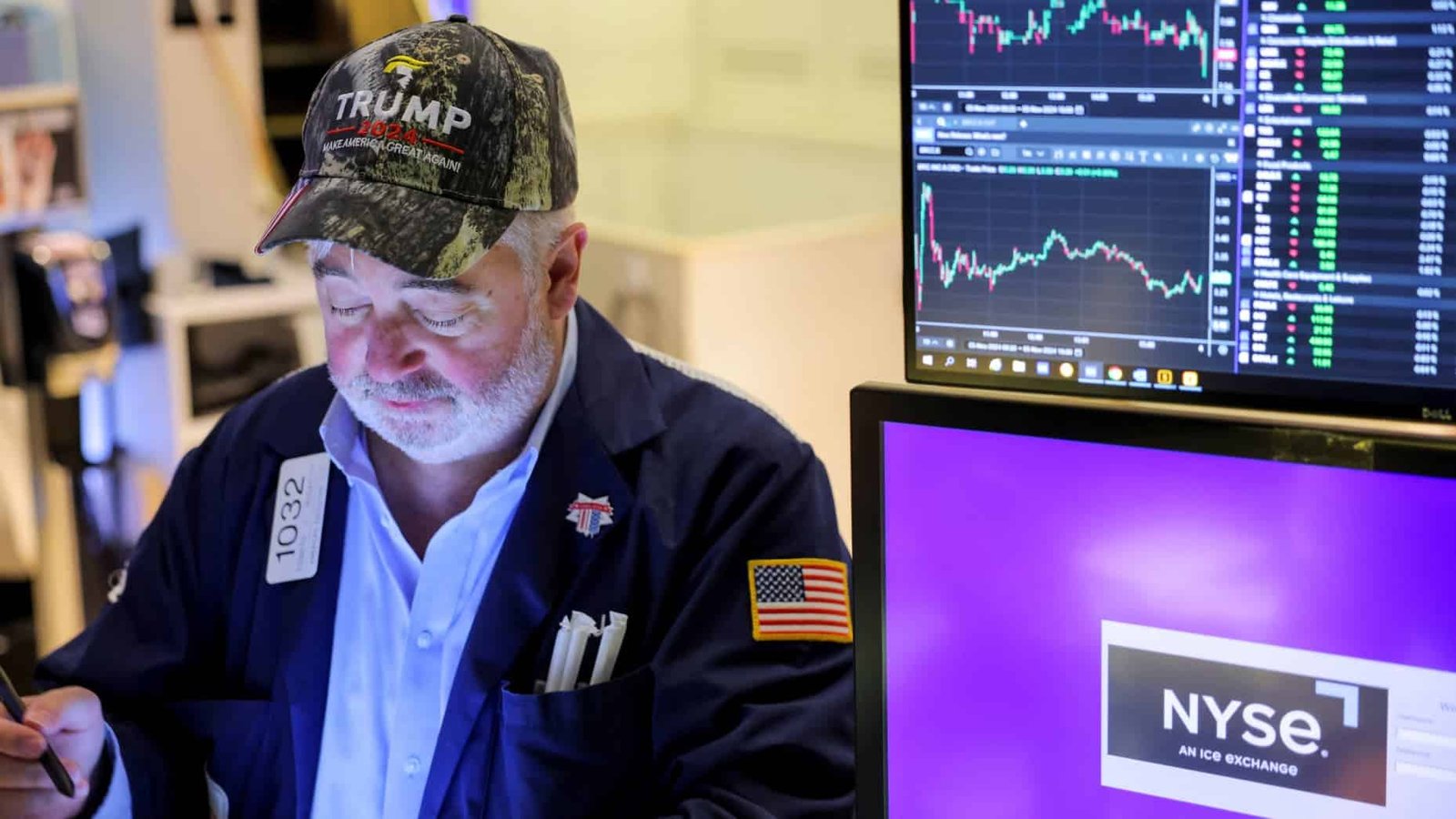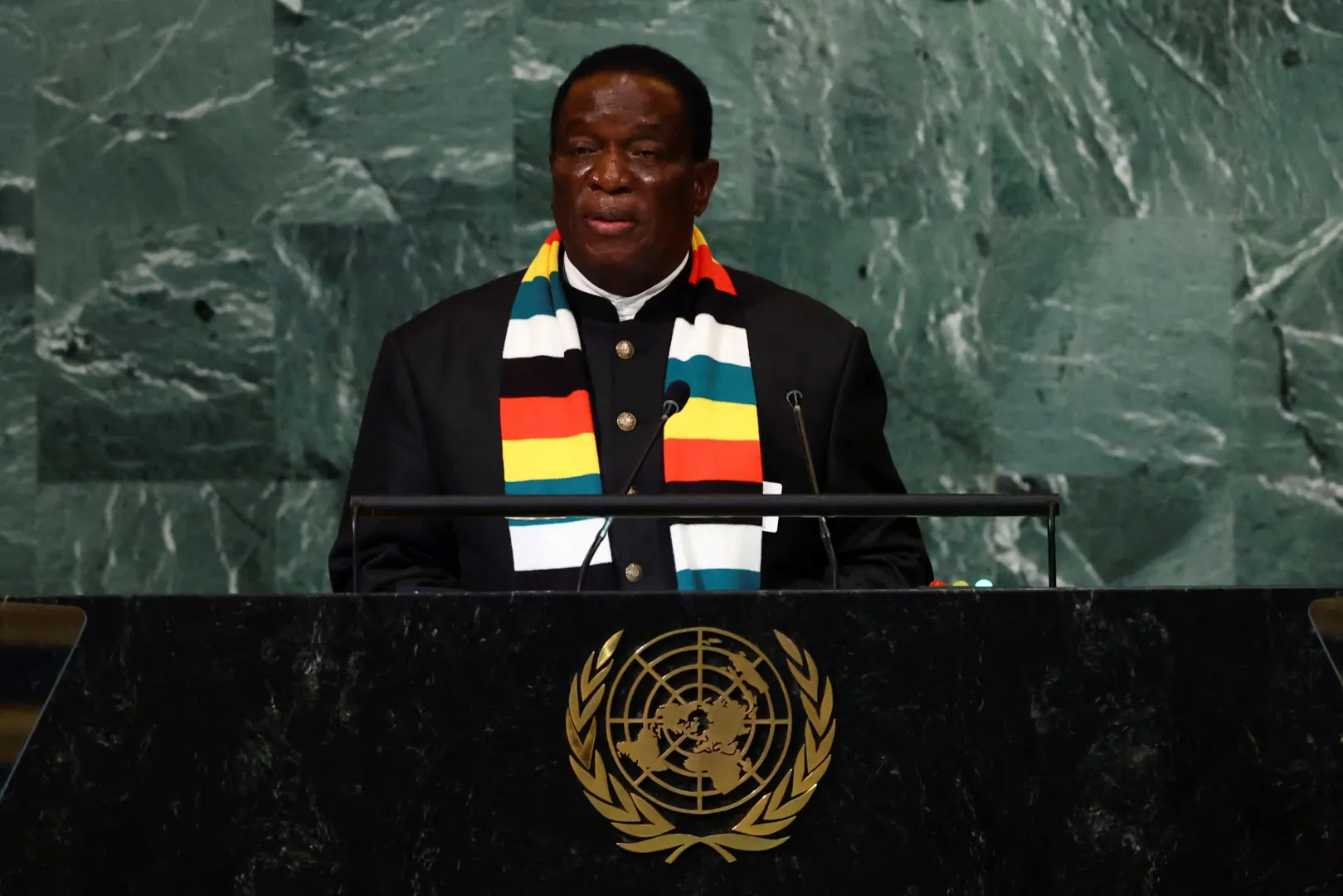Global investors have shifted their economic expectations significantly following Donald Trump’s recent election victory, anticipating both stronger global growth and rising inflation, according to Bank of America’s (BofA) monthly fund manager survey. The survey indicates that investors are positioning their portfolios in response to Trump’s win, with increased allocations to U.S. stocks and small-cap companies likely to benefit from a revitalized U.S. economy.
BofA’s poll, which included 179 fund managers overseeing a combined $503 billion in assets, highlighted a dramatic turn in sentiment following the election. Among the respondents who answered after the election results, 23% projected a stronger global economy in the coming 12 months—a level of optimism not seen since August 2021. This marks a significant reversal from October, when a larger proportion of respondents had anticipated economic weakening.
Shifting Economic Sentiment: From Concerns to Optimism
The survey reveals a significant change in expectations between October and November. In October, investors were largely pessimistic about the global economy, with many expecting a downturn due to factors like high-interest rates, ongoing inflation concerns, and geopolitical instability. Following Trump’s election, however, there appears to be a renewed sense of optimism regarding U.S. economic growth, which investors believe may have a ripple effect on the global economy.
The net increase of 23% in positive growth outlook comes amid Trump’s promises to support U.S. manufacturing, energy independence, and infrastructure development. Historically, Trump’s pro-business policies, including tax cuts, deregulation, and a focus on domestic job creation, have attracted investor support, as they often translate into greater market confidence and stock gains. Many investors anticipate that a similar approach in Trump’s potential second term could support growth in industries heavily reliant on U.S. domestic demand.
Inflation Expectations on the Rise
In addition to improved growth expectations, inflation forecasts among investors have also shifted. While October’s survey had shown a net 44% of respondents expecting inflation to decrease, only 16% maintained that view in November. Now, a net 10% of those polled expect inflation to rise over the next year, marking the highest level of inflation expectation since July 2021.
Inflation expectations can often be a double-edged sword for investors. While moderate inflation can benefit stocks by increasing corporate earnings, runaway inflation erodes consumer purchasing power and increases input costs for businesses. Trump’s policies, particularly in sectors like energy and manufacturing, may potentially fuel inflationary pressures through increased demand for domestic resources and infrastructure spending.
Furthermore, Trump’s stance on the Federal Reserve and his past criticism of interest rate hikes may have influenced investor sentiment. The possibility that Trump’s administration might pressure the Fed to maintain lower interest rates could fuel inflation if the economy grows too quickly.
Investors Favor U.S. Stocks and Small Caps
In light of these shifting economic expectations, investors are adjusting their portfolios by increasing their allocations to U.S. equities, particularly in sectors anticipated to benefit from domestic growth. A net 29% of investors now report being overweight on U.S. stocks—the highest level of allocation to U.S. equities since August 2013. This trend likely reflects confidence that Trump’s policy measures will benefit U.S.-focused companies, especially small-cap stocks that are more reliant on domestic markets.
Small-cap stocks tend to be more sensitive to changes in the domestic economy, which is why they are often favored when investors expect U.S.-centric economic growth. Moreover, these stocks are typically more resilient to international trade tensions, a factor that may also have influenced allocations. With Trump’s past stance on international trade agreements and tariffs, investors may be positioning for a potential reemphasis on trade protectionism, which could benefit smaller, domestically focused businesses.
Global Market Reactions
Trump’s win has prompted reactions across international markets as well, with many investors reassessing their positions in other asset classes. European markets showed a mild increase in volatility following the election, as investors considered the potential implications of Trump’s policies on trade relations with the EU. In Asia, markets were mixed, with some investors cautiously optimistic about the potential for increased U.S.-China tensions, which could lead to shifts in global supply chains.
Emerging markets, particularly those dependent on U.S. trade, could face heightened volatility if Trump pursues more protectionist policies. Historically, emerging markets have benefited from a weak dollar environment, which tends to follow periods of low U.S. interest rates. However, if inflation rises and triggers rate hikes, a stronger dollar could negatively impact emerging economies reliant on dollar-denominated debt.
Impact on Other Asset Classes: Bonds, Commodities, and the Dollar
Alongside equities, investors are also paying close attention to other asset classes, including bonds, commodities, and currencies. Rising inflation expectations typically lead to increased interest rates, which have a direct impact on bond yields. In anticipation of potential inflationary pressures, bond prices have started to experience declines, leading to higher yields. Fixed-income investments, particularly long-duration bonds, may see further volatility if the Fed signals a shift towards more aggressive rate hikes in response to inflation.
In the commodities market, the potential for higher U.S. growth and infrastructure spending under Trump has already led to increased interest in energy and industrial metals. Oil prices, for instance, have shown modest gains as investors weigh the possibility of increased demand for fossil fuels in a Trump administration that has historically been more lenient on environmental regulations. Industrial metals such as copper and steel may also experience price increases if infrastructure projects move forward, as these materials are essential for construction and manufacturing.
Currency markets have also responded to Trump’s win, with the U.S. dollar showing some strength against other currencies. A stronger dollar can have wide-reaching implications, including making U.S. exports less competitive abroad and impacting emerging markets. If Trump’s policies indeed spur rapid U.S. economic growth and lead to rate hikes, the dollar’s strength may continue to rise, posing challenges for U.S. multinational companies with substantial overseas revenues.
Potential Long-Term Implications for the Global Economy
Looking beyond the immediate market reactions, Trump’s election could shape longer-term economic trends, particularly if his administration pushes through significant policy changes. While some investors view Trump’s pro-growth, pro-business approach as favorable, others are cautious about the potential for increased volatility.
Trade tensions are likely to be a key area of focus, as Trump has historically favored bilateral agreements over multilateral trade deals. This could have significant implications for global trade networks, impacting everything from tariffs to supply chain dynamics. For U.S. allies in Europe and Asia, the prospect of renewed trade negotiations may be both an opportunity and a challenge, as they seek to balance relations with the U.S. while maintaining ties with other major economies like China.
In the energy sector, Trump’s policies may encourage further investment in fossil fuels, potentially slowing the transition to renewable energy in the U.S. This could have implications for global climate efforts, particularly if the U.S. scales back its commitments to carbon reduction targets. On the other hand, if U.S. oil and gas production expands, it could lead to lower energy prices globally, which may benefit energy-importing nations but pose challenges for major oil-exporting economies.
Investor Sentiment Moving Forward
As markets continue to digest the implications of Trump’s win, investor sentiment remains cautiously optimistic, particularly regarding U.S. equities and sectors likely to benefit from his policies. However, the long-term outlook is uncertain, as factors like inflation, interest rates, and international trade dynamics could evolve rapidly.
The Bank of America survey highlights a potential shift towards “risk-on” investing, with fund managers appearing willing to take on more exposure to equities and small caps. However, many analysts caution that this optimism may be tested by unexpected developments, such as shifts in Federal Reserve policy, geopolitical tensions, or unforeseen economic challenges.
Ultimately, the survey suggests that while investors are optimistic in the short term, they remain wary of potential headwinds, particularly in the form of inflation and international trade policies. As Trump’s administration begins to take shape, the full impact of his policies on global markets and economic growth will become clearer, with implications that could extend far beyond the U.S. economy.
Ready to take your career to the next level? Join our dynamic courses: ACCA, HESI A2, ATI TEAS 7 and HESI EXIT !🌟 Dive into a world of opportunities and empower yourself for success. Explore more at Serrari Ed and start your exciting journey today! ✨
Photo source: Google
By: Montel Kamau
Serrari Financial Analyst
14th November, 2024
Article, Financial and News Disclaimer
The Value of a Financial Advisor
While this article offers valuable insights, it is essential to recognize that personal finance can be highly complex and unique to each individual. A financial advisor provides professional expertise and personalized guidance to help you make well-informed decisions tailored to your specific circumstances and goals.
Beyond offering knowledge, a financial advisor serves as a trusted partner to help you stay disciplined, avoid common pitfalls, and remain focused on your long-term objectives. Their perspective and experience can complement your own efforts, enhancing your financial well-being and ensuring a more confident approach to managing your finances.
Disclaimer: This article is for informational purposes only and does not constitute financial advice. Readers are encouraged to consult a licensed financial advisor to obtain guidance specific to their financial situation.
Article and News Disclaimer
The information provided on www.serrarigroup.com is for general informational purposes only. While we strive to keep the information up to date and accurate, we make no representations or warranties of any kind, express or implied, about the completeness, accuracy, reliability, suitability, or availability with respect to the website or the information, products, services, or related graphics contained on the website for any purpose. Any reliance you place on such information is therefore strictly at your own risk.
www.serrarigroup.com is not responsible for any errors or omissions, or for the results obtained from the use of this information. All information on the website is provided on an as-is basis, with no guarantee of completeness, accuracy, timeliness, or of the results obtained from the use of this information, and without warranty of any kind, express or implied, including but not limited to warranties of performance, merchantability, and fitness for a particular purpose.
In no event will www.serrarigroup.com be liable to you or anyone else for any decision made or action taken in reliance on the information provided on the website or for any consequential, special, or similar damages, even if advised of the possibility of such damages.
The articles, news, and information presented on www.serrarigroup.com reflect the opinions of the respective authors and contributors and do not necessarily represent the views of the website or its management. Any views or opinions expressed are solely those of the individual authors and do not represent the website's views or opinions as a whole.
The content on www.serrarigroup.com may include links to external websites, which are provided for convenience and informational purposes only. We have no control over the nature, content, and availability of those sites. The inclusion of any links does not necessarily imply a recommendation or endorsement of the views expressed within them.
Every effort is made to keep the website up and running smoothly. However, www.serrarigroup.com takes no responsibility for, and will not be liable for, the website being temporarily unavailable due to technical issues beyond our control.
Please note that laws, regulations, and information can change rapidly, and we advise you to conduct further research and seek professional advice when necessary.
By using www.serrarigroup.com, you agree to this disclaimer and its terms. If you do not agree with this disclaimer, please do not use the website.
www.serrarigroup.com, reserves the right to update, modify, or remove any part of this disclaimer without prior notice. It is your responsibility to review this disclaimer periodically for changes.
Serrari Group 2025












